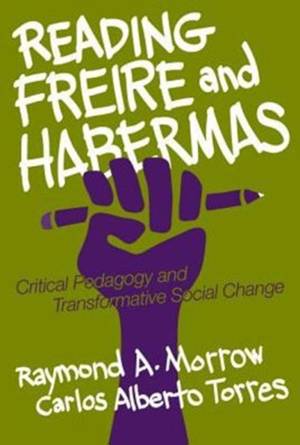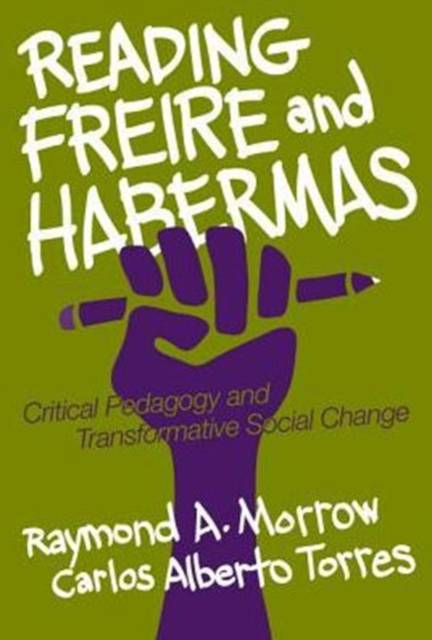
- Afhalen na 1 uur in een winkel met voorraad
- Gratis thuislevering in België vanaf € 30
- Ruim aanbod met 7 miljoen producten
- Afhalen na 1 uur in een winkel met voorraad
- Gratis thuislevering in België vanaf € 30
- Ruim aanbod met 7 miljoen producten
Reading Freire and Habermas
Critical Pedagogy and Transformative Social Change
Raymond A Morrow, Carlos Alberto TorresOmschrijving
In this book, two well-known scholars of critical educational studies provide a compelling introduction to the thoughts of Brazilian educator Paulo Freire and German critical theorist Jürgen Habermas. While there are many other books about these influential thinkers, this is the first to compare their theories in-depth and situate their thinking in relation to other social theories and philosophies of education. The authors demonstrate that, despite their differences, these philosophers share crucial views on science, society, critical social psychology, and educational praxis that are mutually illuminating and offer a new point of departure for a critical theory of education.
The book is organized around the following themes: (a) Freire's and Habermas's philosophies of the social sciences as a form of critical social theory; (b) their theories of society; (c) the critical social psychology that underlies their conception of the dialogical and developmental subject; and (d) the implications of their overall perspective for educational practice
Specificaties
Betrokkenen
- Auteur(s):
- Uitgeverij:
Inhoud
- Aantal bladzijden:
- 224
- Taal:
- Engels
Eigenschappen
- Productcode (EAN):
- 9780807742037
- Verschijningsdatum:
- 1/05/2002
- Uitvoering:
- Hardcover
- Formaat:
- Genaaid
- Afmetingen:
- 159 mm x 238 mm
- Gewicht:
- 485 g

Alleen bij Standaard Boekhandel
Beoordelingen
We publiceren alleen reviews die voldoen aan de voorwaarden voor reviews. Bekijk onze voorwaarden voor reviews.











